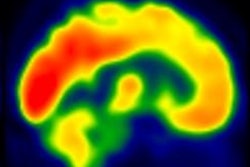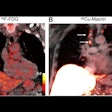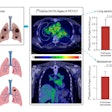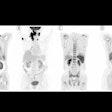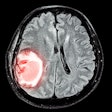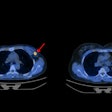
How would you react if your PET scan revealed elevated levels of Alzheimer's disease biomarker in your brain? If you would change your daily health habits and amend your future goals, you are not alone, according to a study published online February 13 in PLOS One.
The findings come from the Study of Knowledge and Reactions to Amyloid Testing (SOKRATES), which polled 80 cognitively normal adults, ages 65 and older, who underwent PET imaging to determine their amyloid protein status. The 50 people (63%) with elevated amyloid deposits viewed the news as "more serious" than other test results, with approximately 20% worried about potential discrimination in employment and insurance coverage if they develop Alzheimer's disease.
"Looking to the future, clinicians need to understand both how patients experience the emerging disease stage of preclinical Alzheimer's and how best to talk about biomarker results in the pre- and post-test context," wrote the authors, led by Emily Largent, PhD, from the University of Pennsylvania Perelman School of Medicine. "Anticipating these needs, the same studies designed to validate preclinical Alzheimer's and to test novel interventions in the preclinical stage are an opportunity to understand the practical and ethical dimensions of biomarker disclosure to cognitively unimpaired persons."
It is estimated that approximately 47 million Americans have preclinical Alzheimer's disease, though not all of them will progress to mild cognitive impairment, dementia, or Alzheimer's. Despite the large number of preclinical cases, current clinical guidelines do not recommend amyloid PET imaging for cognitively normal adults, which causes a conundrum for researchers testing novel drugs to detect Alzheimer's disease in its earliest stages.
"Assuming the eventual success of such trials, millions of patients will be affected," the authors wrote. "There is a need to understand the effects of biomarker disclosure on those individuals."
To better understand the psyche of this patient population, SOKRATES researchers conducted two telephone interviews with individuals who were cognitively normal. These research subjects also underwent amyloid PET imaging to screen for indications of the Alzheimer's biomarker.
After the individuals learned of their amyloid status, the researchers conducted follow-up interviews four to 12 weeks later and again after one year. Among the questions in those sessions were how well the subjects understood their results, how the findings altered their perceptions of their future, and what changes do they plan.
Among the 50 people with elevated amyloid levels, 31 subjects (62%) understood their increased risk of developing Alzheimer's or dementia but also knew their outcome was not definitive. Asked about their prospects, 27 people (54%) described them as "unknown," while 12 participants (24%) regarded them as "bleak" and 14 individuals (28%) optimistically called their future "bright."
| Priorities for 50 cognitively normal people with elevated amyloid levels | |
| No. of people (%) | |
| Stay cognitively active | 23 (46%) |
| Exercise | 22 (44%) |
| Better diet | 17 (34%) |
| Adjust leisure time | 19 (38%) |
| Financial planning | 15 (30%) |
| Medical and legal planning | 14 (28%) |
Perhaps most importantly, nine people (18%) were concerned their elevated amyloid levels could have "social consequences," given the "stigma" associated with Alzheimer's disease. Thus reasons for not disclosing their amyloid status "mirrored these concerns and included desires 'not to distress anyone,' to respect others' desires not to know, to avoid negative social consequences such as being 'shut out' or treated differently, and to prevent discrimination in employment, healthcare, or insurance," the authors wrote.
Given the results, Largent and colleagues recommended additional research on how the possible advance to Alzheimer's disease affects both patients and their families to run concurrently with studies to understand the pathophysiological changes that could occur in the brain.







